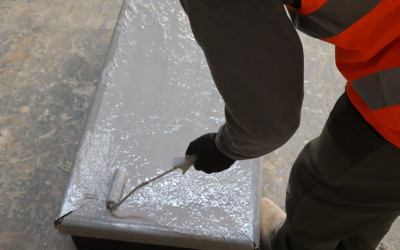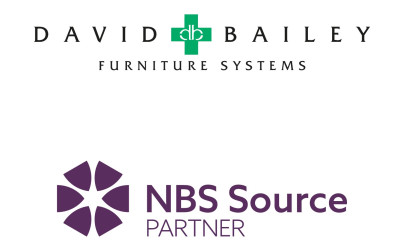Preventing Hospital-Acquired Infections: The Role of Antimicrobial Coatings
The critical role antimicrobial coatings play in preventing hospital-acquired infections (HAIs), highlighting their effectiveness and importance in maintaining a safe healthcare environment.
Understanding Hospital-Acquired Infections (HAIs)
Hospital-acquired infections (HAIs) are infections that people can contract whilst receiving care in healthcare facilities like hospitals or clinics. These infections can result from various medical procedures or simply from being in a healthcare environment.
Bacteria such as MRSA (methicillin-resistant Staphylococcus aureus) and C. difficile (Clostridium difficile) are common causes of HAIs. These infections can spread within healthcare settings, posing risks to patients, staff, and visitors. To help mitigate these risks, antimicrobial coatings are often used to maintain a cleaner and safer environment.
What are Antimicrobial Coatings?
Antimicrobial coatings are specialised treatments designed to inhibit the growth of harmful microorganisms such as bacteria, fungi, and viruses on surfaces. These coatings are especially valuable in high-traffic areas where maintaining strict cleanliness is essential, like hospitals and laboratories. By preventing the spread of microbes, they contribute to creating safer and more hygienic environments.
Biobloc Acoustic Antimicrobial Coating
Our Biobloc Acoustic ceiling tiles feature a highly effective antimicrobial coating, making them ideal for healthcare settings where infection control is a priority. This coating actively inhibits the growth of harmful microorganisms, including methicillin-resistant Staphylococcus aureus (MRSA), Escherichia coli (E. coli), and Aspergillus brasiliensis.
Biobloc Acoustic complies with the NF S 90-351:2013 microbiological classification M1 and the most onerous risk Zone 4. The ≤1 colony forming unit per m³ air M1 results were achieved in tests with:
- Methicillin Resistant Staphylococcus Aureus (MRSA)
- Escherichia coli (E-coli)
- Bacillus cereus
- Acinetobacter baumannii
- Klebsiella pneumoniae
- Streptococcus pneumoniae
- Candida albicans
- <1 was achieved for Aspergillus brasiliensis (Fungus) tests
This makes Biobloc Acoustic tiles suitable for even higher-risk healthcare environments, providing reliable protection against a wide range of microbial threats.
Applications of Biobloc Acoustic Ceiling Tiles in Hospitals
At Queen Elizabeth University Hospital, Biobloc Acoustic ceiling tiles were installed across 110,000m² due to their antimicrobial properties, making them ideal for high-risk infection areas. The tiles are easy to clean and resistant to disinfectants, ensuring durability in busy hospital environments. Additionally, their sound-absorbing qualities help create a quieter atmosphere, contributing to a more comfortable setting for both patients and staff.
How Effective is Biobloc in Reducing HAIs?
While Biobloc Acoustic ceiling tiles have a coating that helps prevent the growth of micro-organisms, they are meant to support rather than replace existing infection control practices.
This coating adds an extra layer of protection, but regular cleaning and disinfection should still be part of the infection control routine. Using Biobloc Acoustic tiles can enhance overall efforts to maintain a cleaner and safer environment in healthcare settings.
Integrating antimicrobial coatings, such as those in Biobloc Acoustic ceiling tiles, offers additional support to infection control measures in healthcare settings. These coatings help maintain a cleaner environment, supporting efforts to reduce the risk of hospital-acquired infections.
The Biobloc Acoustic product was previously known as Bioguard Acoustic. Although the name has changed, the product is now made in the UK and its specifications and features remain the same or improved. Biobloc Acoustic achieves ISO 4 to ISO 14644-1:2015 standard and CP(0,5)5 to NF S 90-351:2013. For more information on the name change and a full list of renamed products, please visit our dedicated product renaming page.
Additional news

Training support for prison roofing courses
Sika's UK Roofing Division has partnered with training provider GLA Group, which delivers prison education programmes across the UK, to help tackle the national construction skills shortage and...
Read more
David Bailey Furniture Systems launches fitted furniture range on NBS Source
David Bailey Furniture Systems has officially launched its extensive range of fitted furniture on NBS Source, opening up new digital doors for architects and specifiers seeking high-quality, fully...
Read more